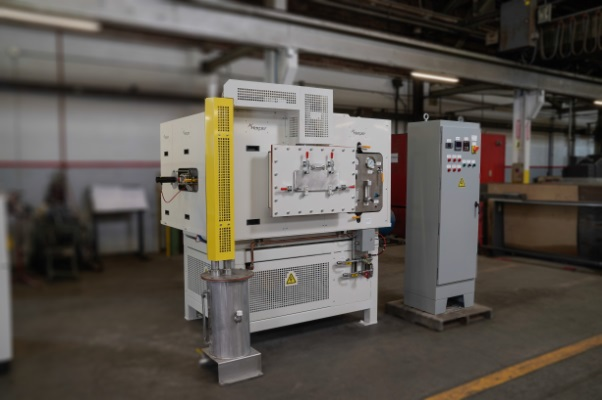Harper International, world leader in thermal processing solutions for advanced materials, has successfully completed virtual Factory Acceptance Testing (vFAT) of Scientific Line Equipment to be used for Processing Carbon Fiber Precursors at the nanoscale level at University of British Columbia (UBC). The vFAT was a first-of-its-kind innovation at Harper in response to restrictions on travel and business gatherings imposed by the COVID global pandemic. Using the vFAT format, Harper, whose production facility is in Buffalo, NY demonstrated satisfaction of equipment performance requirements to UBC’s project team, based in Vancouver, British Columbia.

At UBC, this equipment is being procured as part of a Canadian Foundation for Innovation (CFI) and British Columbia Knowledge Development Fund (BCKDF) project, BiMat: Synthetic biology enabled materials science for high performance bio composites. This CAD $11.2 M project brings together a collaborative work of ten cross-faculty Principle Investigators including those from Mechanical Engineering, Chemical and Biological Engineering, Forestry, and Microbiology and Immunology.
“The BiMat research program will integrate fundamental and applied research in genomics synthetic biology, industrial biotechnology and materials science.” James Olson, dean of the Faculty of Applied Science at UBC says “This will result in UBC pioneering the creation of an entirely new field: synthetic biology-enabled materials science. The research program aims to increase jobs in the bio-products sector and diversify Canada’s portfolio of clean energy options. UBC students will gain industry relevant experience to foster this emerging sectors growth.”
"This oven and furnace system allows for larger scale research batch processing of Carbon Fiber Precursor matts and tows”, says Dr. Renee Bagwell, Senior Technology Engineer at Harper International. “Special attention has been used in the design to allow for fragile materials, such as lignin, to be safely processed and moved from the oxidation oven to the furnace. Additional features permit the researcher to simulate Industrial processing conditions relative to residence times for the material being investigated. This gives increased confidence that the "new material of the future" being researched can be successfully transitioned to Industrial scale.”
Source: https://www.harperintl.com/